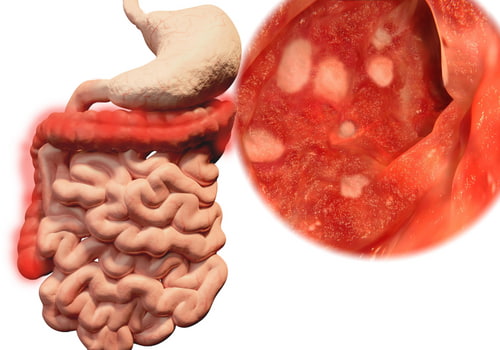Some signs of gastrointestinal problems can be easier to identify than others. However, chronic issues should always be taken seriously in order to avoid future complications. The only frustrating issue is that it can be difficult to recognise passing discomfort from symptoms that should be diagnosed by a trained professional. Let’s examine some common signs of gastrointestinal issues before discussing the steps to take if you suspect that a problem is present.
Gastrointestinal Problems and Symptoms: Knowing When an Issue is Present
What do common gastrointestinal problems feel like? In truth, the answer to this question will often vary from individual to individual. Some common signs are nonetheless present and these should be recognised before moving on. Here are some signals that your gut is not functioning as it should:
- Cramps and bloating.
- A feeling of general “heaviness” even after eating a relatively small meal.
- Upset stomach and/or diarrhoea.
- Acid reflux disease (including chronic GERD).
- Nausea for no apparent reason.
- Unexplained weight loss.
Some individuals may only experience mild levels of discomfort while in others (such as those suffering from Crohn’s disease), the pain may be much more substantial. This is why it is important to gauge the severity of your symptoms based on past experiences.

Short- Versus Long-Term Gastrointestinal Distress
Digestion issues and symptoms can vary depending on the individual. However, they can generally be classified into two primary categories:
- Acute (lasting for a short duration).
- Chronic (problems that persist for more than two weeks).
For instance, an upset stomach after eating foods high in processed chemicals tends to be acute in nature. Normally resolving itself without any type of intervention. The same holds true for a viral infection and even a mild bout of food poisoning.
Chronic issues tend to be more worrisome, as they may signal that an underlying problem is present. Examples include an inability to properly digest food, lactose intolerance and diarrhoea that persists for weeks at a time. In any of these cases, it is wise to speak with a physician in order to obtain an accurate diagnosis.
Three Common Signs that a Digestive Disorder May be Present
Now that we have obtained a broad overview of the symptoms and potential causes of GI problems, it is wise to discuss a handful of signals that intervention may be required.
A Change in Your Normal Bowel Movements
This first symptom is rather broad in nature. It could involve chronic constipation or an urgent need to visit the bathroom numerous times throughout the day. The exact causes may be transient or long-term in nature. Either way, it is wise to speak with a GI specialist.
Abnormal and/or Recurrent Cramps
Cramping can signal a host of digestive issues. It might be a sign that your small intestines are not properly digesting food, that the healthy flora within your GI tract are no longer present or that your stomach is producing too much acid. This is particularly the case if the cramps do not seem to correlate with any specific type of food.
Feelings That Your Bowels Have Not Been Emptied Even After Passing Stool
While everyone feels bloated from time to time, this sensation is normally relieved after going to the bathroom. Feelings that persist for longer periods of time are generally known by the term “rectal tenesmus”. Once again, the causes will need to be uncovered by a professional. Common underlying disorders include inflammatory bowel disease (IBD), irritable bowel syndrome (IBS) and in rare cases, colorectal cancer.

Try to Embrace a Proactive Approach
Gastrointestinal disorders will often resolve themselves without the need for any type of intervention. Still, there can be instances when the symptoms correlate with a discrete condition or situation. For instance, perhaps you are allergic to a specific type of food or you are unable to digest lactose. There may also be times when you experience a moderate level of discomfort immediately after being fitted with a Spatz3 adjustable gastric balloon. The good news is that these feelings are transient and they are far outweighed by the subsequent weight loss benefits.
If you recognise any of the signs of gastrointestinal problems mentioned above or if they have become chronic in nature, always speak with a doctor to learn more about your options.


